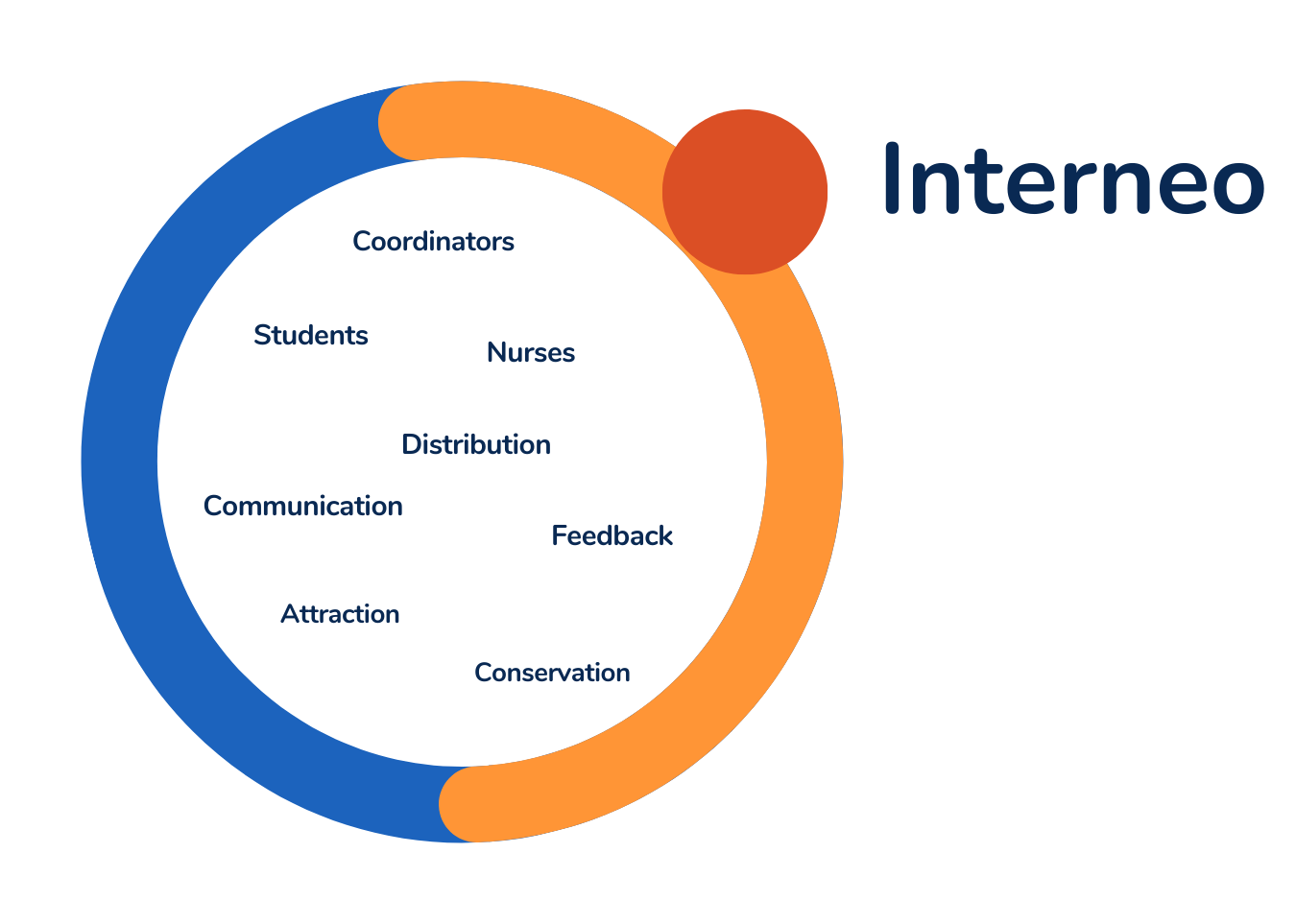The challenges of managing nursing placements.
Nurse managers and placement coordinators play a crucial role in this coordination. However, they also face major challenges. Managing internships for multiple students across different facilities can become a logistical headache. Without effective coordination, this can lead to unequal access to internship opportunities and available resources, affecting the quality of training.
Well-planned territorial coordination turns these challenges into significant advantages. Firstly, it greatly simplifies internship management by centralizing administrative processes, enabling coordinators to focus more on providing students with pedagogical support. By ensuring equitable access to resources, it guarantees that all students benefit from the same quality of training, regardless of their place of residence or training institution.

The benefits of effective territorial coordination of nursing internships
Fair distribution of resources
Territorial coordination ensures equitable distribution of resources and placement opportunities. All students have access to a variety of practicum sites, including hospitals, clinics and long-term care centers, regardless of their place of residence. This distribution ensures that every student benefits from a rich and varied experience.
Improved quality of training
By centralizing the management of internships, the quality of training is greatly enhanced. Students have access to quality internships, guaranteeing a comprehensive and diversified training program. This diversity includes exposure to different medical specialties and care environments, essential for balanced training.
Logistical and pedagogical support
Centralized coordination offers enhanced logistical and pedagogical support. Training institutions can better plan travel, accommodation and resources for students on placement. This reduces logistical stress for students, enabling them to concentrate fully on their learning.
The crucial role of communication in coordinating placements
For territorial coordination of nursing placements to be effective, fluid communication between all stakeholders is essential. Here are some strategies for improving this communication:
- Digital internship management platforms: Tools such as Interneo, already used by Assistance Publique – Hôpitaux de Marseille (AP-HM), can centralize information and facilitate the management of schedules, assessments and feedback. These platforms enable transparent, real-time communication between students, establishments and trainers.
- Regular meetings and coordination committees: Set up regular meetings between IFSI placement managers, healthcare facility tutors and ARS representatives to discuss challenges and opportunities. These committees can quickly resolve problems and ensure that training objectives are aligned.
- Ongoing feedback and adjustment: Encourage ongoing feedback from students and coordinators on placement experiences. This feedback enables the organization and supervision of internships to be adjusted, and the quality of training to be constantly improved.

Impact on the preparation of future healthcare professionals
Preparation for diverse work environments
Students are better prepared to work in a variety of care settings, from emergency medicine to geriatrics to home care. This diversified preparation is essential for their future careers.
Strengthening practical skills
The diversity of internship sites enables students to strengthen their practical skills in a variety of real-life situations. This hands-on experience is crucial to developing the confidence and competence needed to manage complex and unforeseen situations.
Developing resilience and adaptability
By being exposed to a variety of working environments, students develop the resilience and adaptability essential for their future careers. These qualities are essential for adapting to the day-to-day challenges of the healthcare environment.
Conclusion
In short, territorial coordination of nursing internships plays a crucial role in improving the quality of training and preparation of future healthcare professionals. By optimizing the distribution of placements, standardizing practices and improving communication, healthcare establishments can offer more comprehensive and enriching training. Investing in digital tools such as Interneo is essential to achieving these goals and ensuring a well-trained nursing workforce ready to meet tomorrow’s challenges.



